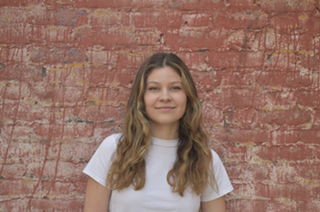Mary Sheridan is a psychedelic facilitator, guide and advisor at Myco-Vision in Bend. While she completed the Oregon psilocybin treatment course, she decided to remain "underground" and not become a licensed psilocybin facilitator, citing issues with the current licensing system in Oregon.

Source Weekly: What services do you offer your clients?
Mary Sheridan: My business is a coaching and support business. I don't sell or supply them with the [psychedelic] substances. Since the substances, at the levels that we use, are decriminalized for personal use in the state, my clients find those themselves and I kind of help them through the experience.
I usually work with people for anywhere from a few days to a few months, getting them ready for the experience, making sure they understand the process and that they have clear intentions and are physically and mentally ready for the psychedelic experience. Then, I sit with them and help them prepare and navigate the experience itself. I also coach people in micro dosing, finding the right dose and schedule that works for them.
SW: Why did you decided not to be licensed?
MS: I had applied for the license...because I had paid $10,000 for the training course and it seemed kind of silly to not do it. But I decided not to, ultimately, for a number of reasons. The first is I just think that the way the Oregon law is written and structured, it's got a lot of flaws.
I think it's a really big oversight that they didn't include any indigenous practitioners in the process of writing the law, and there aren't any on the current board. I feel like that isn't a system that I really want to be a part of, that is so exclusionary of the people that have mostly developed and been doing this work.
Also, I work with MDMA and psilocybin, mostly, but also a couple other substances, and I feel like there's a lot of value in all of them. To be licensed, I would be restricted to just working with psilocybin and I'm not ready to give up the other practices at the moment.
The model of a licensed service center makes it so that you can't be a sole practitioner. It doesn't work out to be able to do it on your own without charging exorbitant prices that make it so the people that need the services probably cannot afford them. It makes it kind of an elite service, which is not the kind of practice I want to have.
SW: How do people obtain the psychedelics?
MS: If somebody doesn't have a trusted source, I can definitely offer some referrals for people that I know have safe and effective products. I don't get involved in that process; I just will connect them to somebody that can help them. With psilocybin, it's pretty straightforward. There are many places to acquire psilocybin mushrooms here in town or mail order.
There's so many and it's a very generally safe product, but when it comes to MDMA, I'm a lot more cautious with what people bring in and I help people learn how to test it. I always make sure that even if it's from a source that I know and trust, we test it together, and I feel comfortable that they know how to do that in the future.
SW: What are the benefits of using psilocybin mushrooms or MDMA?
MS: There is a lot of research coming out about the effectiveness of these substances in treating a wide range of mental and physical health ailments, everything from PTSD and autoimmune diseases, migraines, depression and so forth. I have seen it profoundly change people's lives.
It can relieve a lot of the pain and existential dread that we're all dealing with. It can help people get above water enough to really make the changes that they need to make to find happiness. If you can open up your mind to new ways of thinking and new ways of being it can make it seem more possible to get there.
SW: What are the biggest issues with licensed facilities?
MS: I do think that there are just more people looking for these services than licensed facilities can handle at the moment. The licensed facilities in town right now have hundreds of people on a waiting list, and only a small handful of facilitators.
Also, I have some concerns about the direction that the license system is going. The course I took didn't have any practical training. We weren't able to use the substances. And there's people that are graduating from these courses who have never taken or have any personal experience sitting with other people who are using the substances, and so you can technically be licensed without ever having done it.
Now, I don't think that there's any providers here in town that are licensed and above ground that are insufficient. Of the people that are currently practicing in town, they're all very reputable, and experienced people, but I don't know if that's the case overall in the state, and I am a little wary to align myself with that system without kind of knowing what's going to happen over time with these service centers.
There's just a lot of concerns and I would like to support the licensed system, and I hope that one day, these things can kind of be addressed and changed, and I would be happy to become licensed at that time. But I'm just not, at this time, comfortable doing that.






















